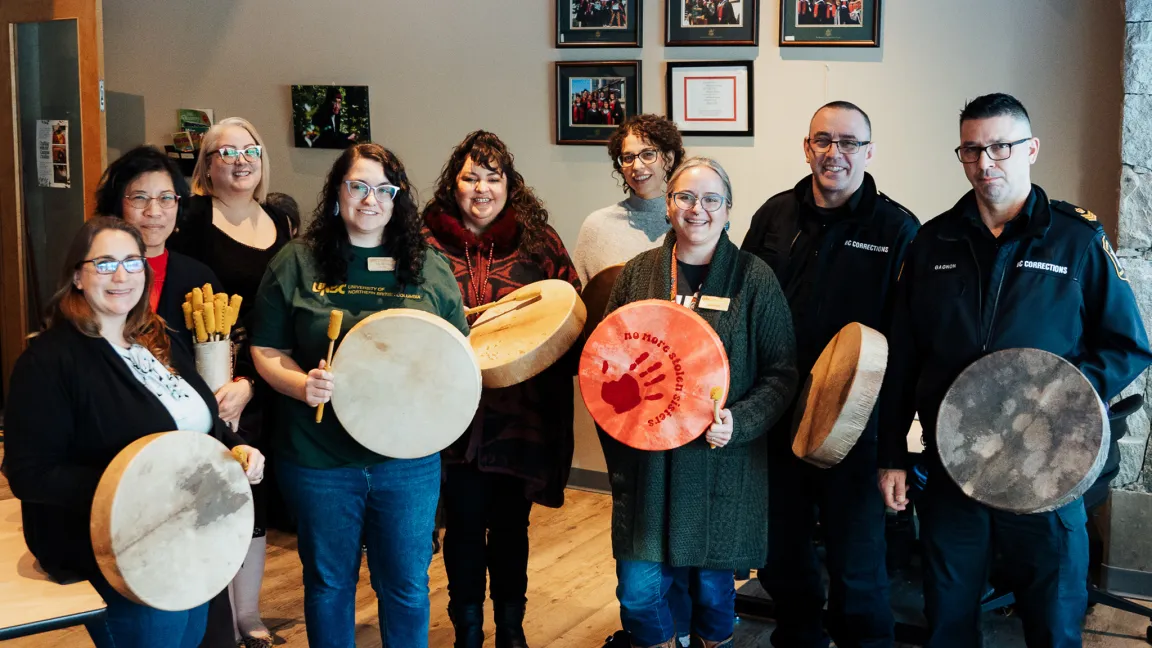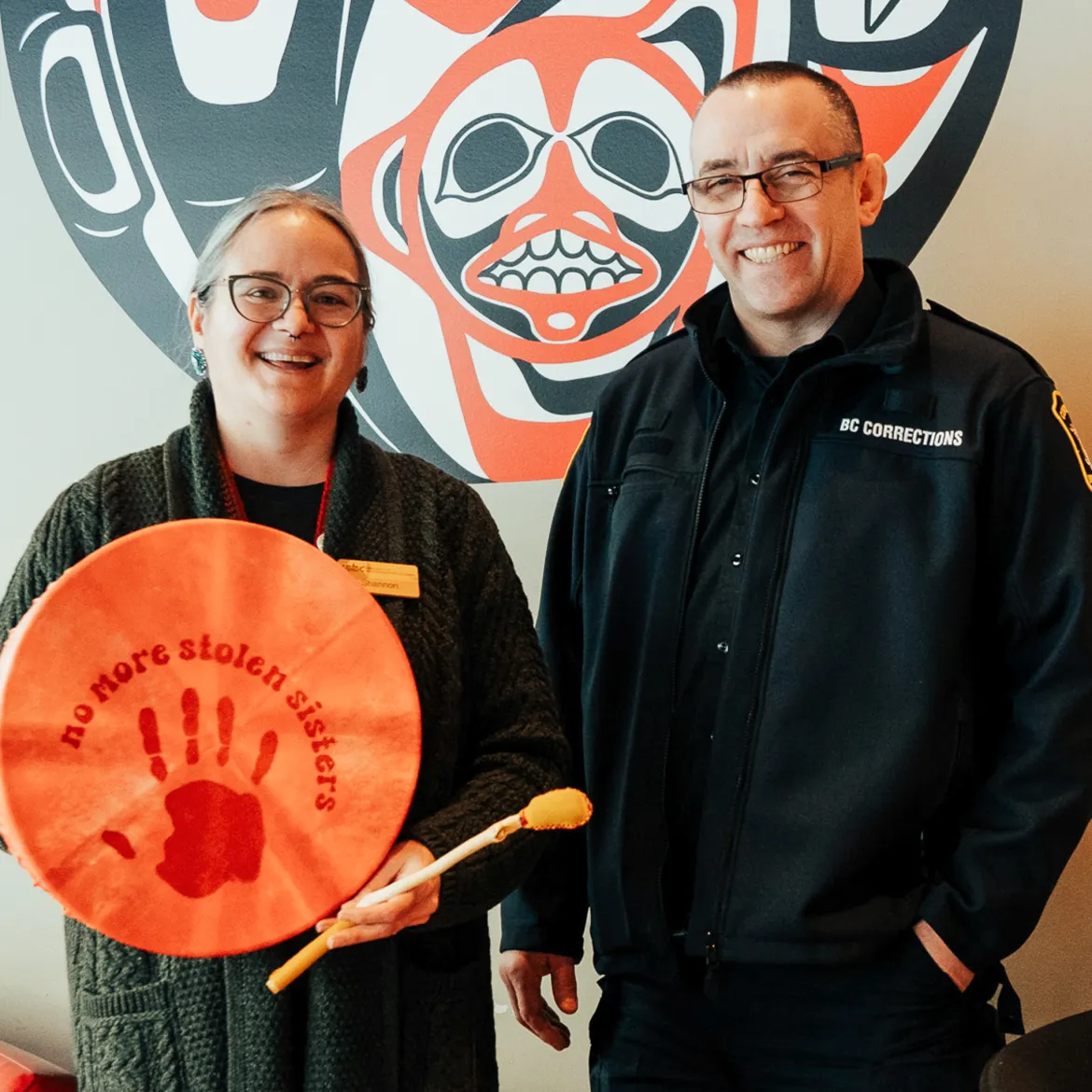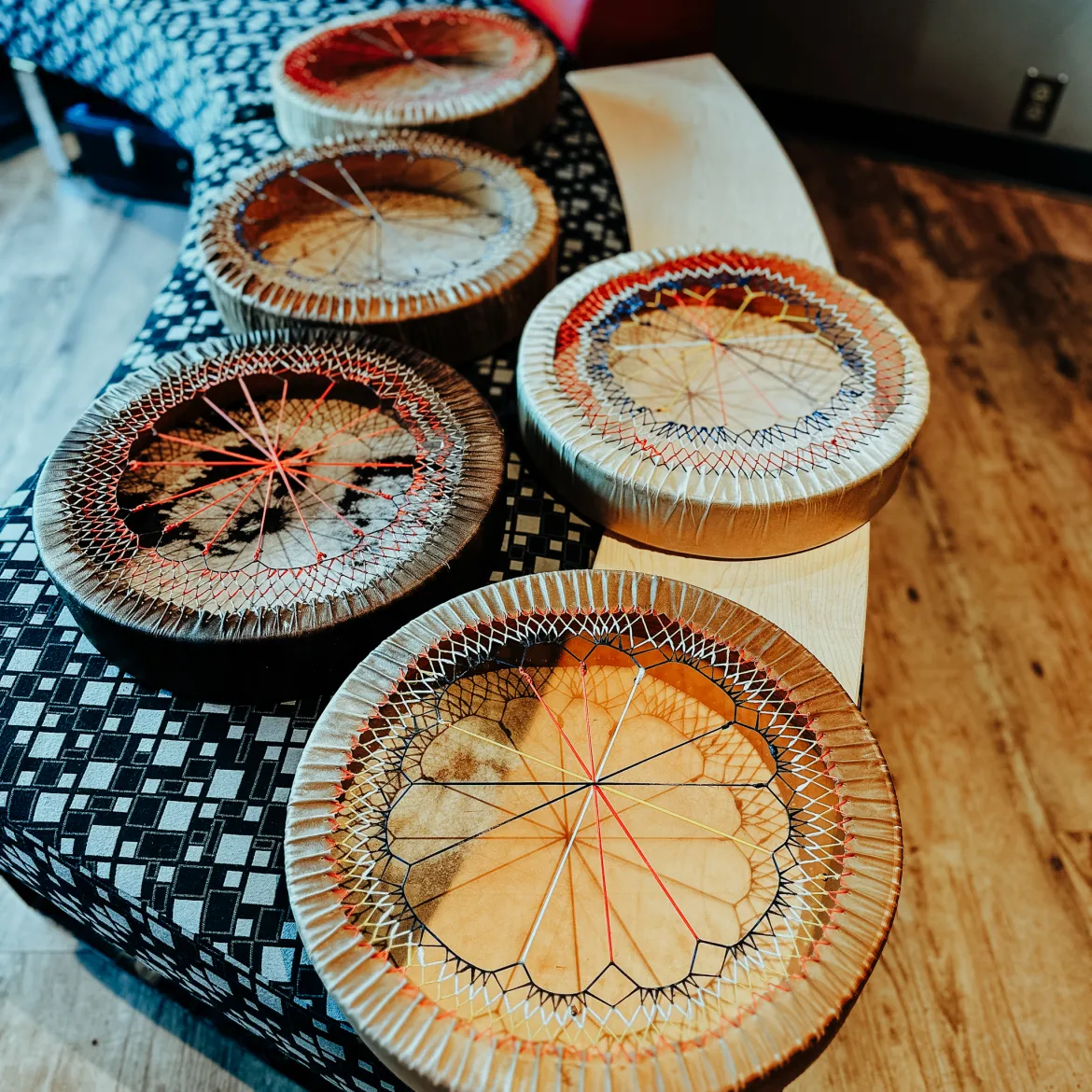UNBC's First Nations Centre receives gift of drums from PGRCC cultural program
An incredible act of generosity from participants in the Indigenous Cultural and Spiritual program at the Prince George Regional Correctional Centre will give back to students at UNBC for years to come.

Prince George, B.C. – A significant and meaningful gift of 22 handcrafted drums to UNBC’s First Nations Centre will provide students with new opportunities to increase cultural awareness, participate in traditional practices and foster connections to community.
The generous donation from the Indigenous Cultural and Spiritual program at the Prince George Regional Correctional Centre (PGRCC) will enable students to engage in drumming circles, cultural events and celebrations such as Convocation.
For years, the First Nations Centre (FNC) has facilitated drum-making workshops for students, allowing them to craft and keep their own drums.

“However, that’s meant the Centre, itself, lacked a supply of drums for ongoing activities,” explains Indigenous Cultural Connections Coordinator Shannon MacKay, who reached out to PGRCC staff after learning about the program. “Receiving a gift like this is huge—it’s a substantial contribution both monetarily and in terms of the time and effort put into making each drum.”
Duke Forsythe is a Correctional Officer involved in the PGRCC program where participants make drums as part of their healing and cultural connection process. The program is open to everyone, with Indigenous and non-Indigenous individuals working together, sharing knowledge and contributing to different stages of the drum-making process.
(Photo at left shows MacKay standing with Forsythe, holding a drum designed and gifted to her by program participants.)
“Each drum may have been completed from start to finish by one person, or it may have four or five different hands contributing at different stages,” says Forsythe. “It’s a nice collection of people, thoughts and input. It’s something traditional to connect with—it’s calming and grounding and often serves as a tool during one-on-one discussions with an Elder or staff member.”

Forsythe says the drums have evolved over time, with designs inspired by cultural traditions shared by program participants. A distinctive fish-netting pattern on the back of many drums originated from conversations about traditional fishnets and the significance of salmon as a staple food source for Indigenous Peoples along the B.C. coast and inland. The integration of this pattern into the drums is a symbolic homage to the salmon and the interconnectedness of culture and sustenance.
Beyond the crafting process, Forsythe says the project carries deep emotional significance for those involved. “Many of the men and women in this program talk about how much it means to them that the drums are going to children and students,” he says. “It gives them a sense of connection to community and purpose in giving back.”
The FNC operates on the foundation of the Four Rs of Reconciliation: respect, relevance, reciprocity and responsibility. Mackay highlights this gift of 22 drums as an incredible act of reciprocity and a powerful reminder of the strength found in cultural connection and the spirit of giving back.
“This is an amazing act of reciprocity for our students and for our community,” she says. “These drums will be with us for a very long time—it’s amazing that the people in this program were willing to do that for us.”